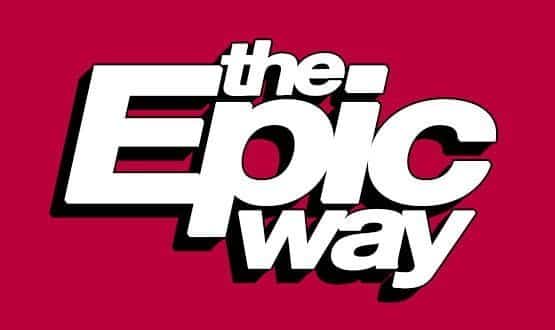Epic “ready for NHS”
- 4 April 2012

The senior vice president of US electronic patient record vendor Epic says the firm is ready for the NHS, is optimistic about its chances and sincerely hopes it will win the high-profile Cambridge procurement.
In an exclusive interview with eHealth Insider at HIMSS12, Las Vegas, Carl Dvorak, executive vice president, Epic, and Leslie Karls, who is leading on the NHS, said the company had first started engaging with the NHS in England in the mid 2000s, at the request of NHS Connecting for Health.
“Six or seven years ago we decided the NHS market wasn’t right for us, but we’ve been keeping watch of developments and been getting more enquiries from the UK.”
From the US to the UK
Epic landed in Europe a few years back, with three low key reference sites in the Netherlands. It is now gunning for a slice of the NHS market, as the health service goes through a major re-organisation and the healthcare IT market goes through a refresh as the National Programme for IT in the NHS winds down.
Epic is one of three suppliers shortlisted by the high-profile joint Cambridge University Hospitals NHS Foundation Trust and Papworth Hospital NHS Foundation Trust EPR procurement, which has come up with an all-US shortlist to support an eHospital project.
Many believe the system, which offers strong clinical tools, is the option prefered by some senior medics at Cambridge. If Epic isn’t chosen it won’t have been for lack of effort by the Wisconsin-based firm.
“I’m optimistic. I do sincerely hope we win; it would be an extremely valuable combination,” says Dvorak. “We have much we think we can bring to the NHS, but I also think there is much we can learn from it.”
Dvorak says that while the NHS is significantly different to the US, the firm is well placed to avoid the pitfalls experienced by other US EPR vendors , who have found adapting their systems for NHS use to be time consuming and difficult.
“We began our work on adapting for the UK six to seven years ago in Leeds, and our work on the patient administration system reflects that,” he says. “We took the decision seven years ago to internationalise EPIC and that work is now done. We’ve internationalised the code base.”
Asked whether the difficulties experienced by US rivals gave cause for concern, he adds: “In the US, vendors like Cerner and GE have their own challenges in areas including access and billing. We do things differently in how we develop.”
After all, he says, while the healthcare systems may differ, the need for integrated solutions doesn’t: “Clinical and reimbursement system have to be in synch.”
The Epic way
Dvorak stresses that unlike rivals Epic is a privately held company that retains its software development roots, with 30-40% of the company focused on R&D and a similar percentage on implementation. The company has only a handful of sales people.
The company says it wants to make sure its products “make a difference” and sets the bar high on customers and their readiness.
Epic founder and boss Judy Faulkner is legendarily famous for vetting customers. It’s not enough to want to buy Epic – you have to be ready to commit to implementing it properly as well. This typically entails board-level buy-in and a commitment to major investment in accompanying process change.
To the huge frustration of rivals, “the Epic way” time and again results in extremely satisfied customers. The company and its software consistently top US health IT satisfaction indices such as KLAS, something Epic executives are hugely proud of.
But it’s not a pick and mix approach. Instead, Epic offers a multi-award winning, fully integrated clinical suite spanning hospital in-patient and out-patient areas, together with primary care and patient access.
So the Epic way doesn’t, for instance, leave much room for ‘best of breed’. “Some people think we take this position for business reasons, but we know what happens when systems aren’t built to work together. We look at it as a safety issue,” says Karls.
Also, she says, hospitals and clinicians typically experience a lot of disruption in any new IT implementation and it is necessary to give them pay-back in the form of benefits, which points to implementing as much of an EPR as possible at once.
The approach comes with a price tag attached, with Epic usually bracketed as a top-tier solution. Even so, the Epic customer list reads like an A-list of US healthcare providers: Kaiser Permanente, University Pittsburgh Medical Centre, Deaconess Health System, Sentara, and Geisinger Health System.
For an NHS trust like Cambridge, that wants to be a member of the international super-league of academic medical centres, Epic may be seen as part of the membership fee.
Still, Karls says that Epic doesn’t just focus on really big academic centres: “While we do focus on larger healthcare organisations, we define those as having about 350 or beds in their system,” she says.
And she rebuts the idea that Epic is too expensive. “If you look at the KLAS reports, customers say they are happy both on performance and pricing.”
Dvorak adds: “We tell customers what it will cost up front. Some companies tend to understate it; we don’t. We also tell customers how long it will take to implement. I’m very proud that 90% of our sites come in on time and on budget.”
Just add patients
Another criticism made of Epic is that its software doesn’t run on particularly new technology, since it uses a mix of Sybase/SQL and Oracle and Cache databases (the Cambridge procurement initially saw InterSystems competing against Epic, one of its largest Cache customers).
Dvorak says most competitors “have a similar heritage.” A software engineer by background, he adds: “Object orientated databases still struggle with performance.”
He also points to Epic’s early introduction of “a pure mobile platform with native iPad, iPhone and Android applications” as just one example of the company making sure that it uses the full potential of mobile technologies. Another is the move to a web services platform.
One consistent area of innovation has been to offer a patient held records – Epic’s MyChart gives patients easy access to the same charts as their doctor, together with the ability to order test results and schedule appointments. Kaiser Permenate has used this as the basis for an extremely effective personal health record initiative.
Dvorak says that the new service delivery models and efficiency savings it has achieved have come about by investing in enabling technology, including Epic. By clear implication, he thinks some big NHS organisations can do the same.




